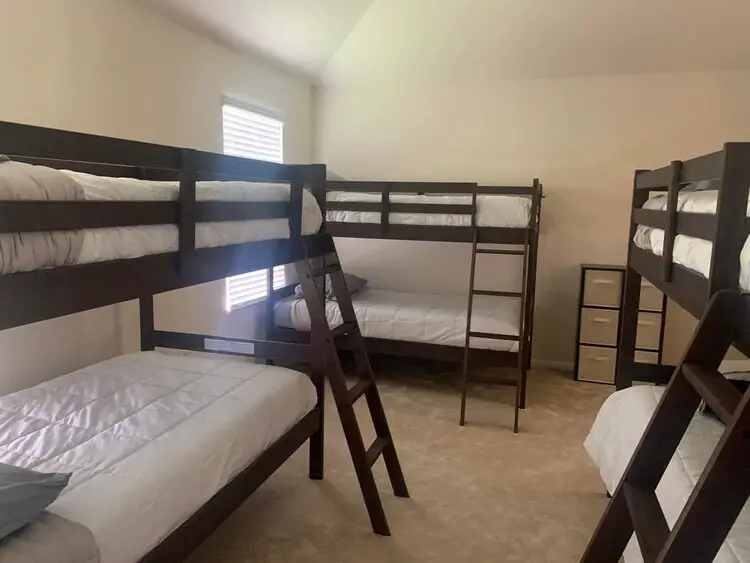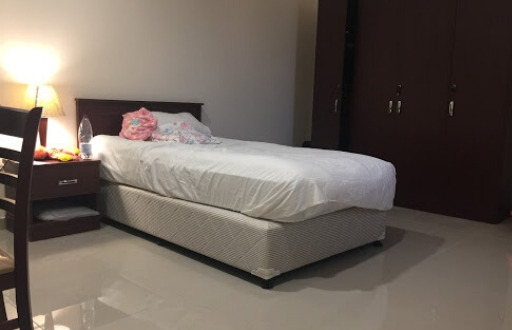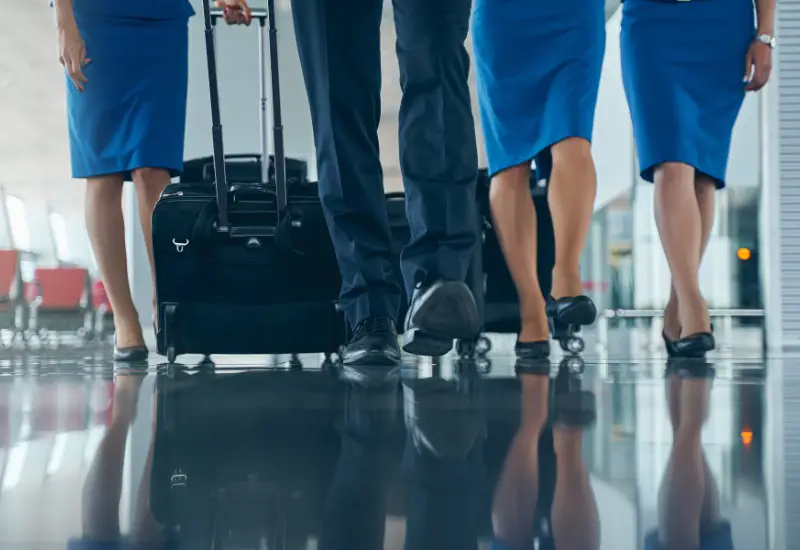When Flight Attendants aren’t sleeping in a hotel where do they go? Well home… Where is home?
That answer differs from flight attendant to flight attendant and from airline to airline.
This article briefly explains where flight attendants live, and the various logistics that go into choosing a place to live when you happen to be cabin crew.
Do You Have to Live in a Particular City if You Are a Flight Attendant or do You Choose Where to Live?
With the exception of certain Middle Eastern Airlines, flight attendants do not have to live in the city they have been based in.
Generally speaking, flight attendants can live anywhere they want to.
Heck, you don’t even have to live on the same continent as your base airport, if you don’t want to.
But here I am going to break down the three basic choices you have.
1) Living in base
Living in base means you live in the same city as your domicile airport.
👍 Benefits of living in base include:
- short commute times to get to work
- not having to worry about making it to the airport in time while on reserve
- being able to get home fast after a trip.
👎 Cons of living in base include:
- high costs of living (since bases are usually in large metropolitan areas)
- potentially living far away from your family and friends.
I highly recommend living in base if you are consistently going to be on reserve. But there are alternatives.
2) Living near-base
Living near base means you live within driving distance of your base airport.
For flight attendants on reserve, it is important to make sure you can drive to base fast enough to make it within your report time-frame.
👍 Benefits of living near-base include:
- a reliable, albeit longer, commute and lower costs of living.
👎 Cons of living near-base include:
- having to drive home jet-lagged in the middle of the night after a long trip.
Personally, I spent most of my airline career living “near base.” I was located a 45-minute drive from my base airport. Sometimes driving home at 3 am sucked, but most of the time I felt like I lived in the perfect location. It was cheap, quiet, and I never had to worry about getting a late-report on reserve.
3) Living outside-base
Flight attendants who live outside-base are called “commuters,” because they literally use their flight benefits to commute to work from wherever they do live.
But beware the commute, it is not for the faint of heart.
I commuted for six-months while I was based in Chicago. It was not fun.
I would often have to wake up a 3 am so I could catch the first commuter jet to ORD, and then I would just have to chill in the Crew operations center for hours until my first flight.
Other times my “go-home leg” (the last flight of a trip) would get delayed, and I would miss my commuter flight home. I literally used to keep an air mattress in ops in case I needed to spend the night at the airport.
That said, most commuters don’t sleep in crew ops, but I’ll get to that in a moment.
Can Flight Attendants Choose Their Base?
Flight attendants usually have some level of control over where they get based, although new-hires might not always get their first choice, since base allotment is usually awarded based on seniority.
Once you have some seniority, however, you can transfer between the bases until you find one that fits.
Related read: American Airlines Flight Attendant Bases (Ultimate Guide)
Where Do Flight Attendants Usually Live?
Private houses / apartments
Most flight attendants live in private houses or apartments just like anyone else.
But there are two main exceptions to this, which I will explain below.
Crashpads

Crashpads are a commuters’ home-away-from-home. In order to avoid sleeping on the floor of the crew room, like me, most commuters will rent a bed in a crashpad in addition to their private residence.
Crashpads are usually located in apartments or houses close to base airports and usually house a dozen or more cabin crew members.
Some crashpads are mixed-gender, others are not.
Some house both pilots and flight attendants, others are work-group specific.
Most of the time you get your own bed, and access to common rooms such as a kitchen and the bathroom(s).
Crashpads cost anywhere from $150-$500 a month, so they aren’t always cheap, but they do make commuting a lot easier.
Airline Housing

It should also be noted that some Middle Eastern airlines provide housing for their flight attendants, and generally require you to reside there (unless you are on leave/vacation). These airlines, which include the likes of Emirates, Qatar, and Etihad (to name a few) own entire apartment buildings where they house their crew members.
This housing is paid for in full by the airline, and usually come fully furnished. You might have a roommate or two, but you will have access to your own private bedroom and your own personal bathroom.
It sounds like a luxury, but these housing arrangements often come with many rules and regulations, including restrictions against visitors and pets.
On this topic:
- Qatar Airways Cabin Crew Free Accommodation & Rules
- Etihad Airways Cabin Crew Life: Everything You Need to Know
Do Flight Attendants Move a Lot?
Yes and no.
Once you are assigned your initial base, you generally won’t have to move unless you want to.
I know flight attendants who have lived in the same place and worked out the same base for their entire careers.
I also know flight attendants who willingly change bases every six months.
There is a huge caveat to this though.
When times are tough, (think global pandemic), the airline can forcibly re-base you to fill vacancies. They will do this in reverse seniority order.
I remember when my seniority cohort was recalled after pandemic furloughs, some people were sent to new bases, or “displaced” as we call it in the industry. When this kind of thing happens you may be forced to move if you are unwilling to commute that is.
Do You Have to Move When You Become a Flight Attendant?
No. You don’t have to move.
Well unless you work for a middle eastern company.
As long as you can commute to your base, you are perfectly capable of staying put.
Do Airlines Pay Flight Attendants to Relocate?
Most US based airlines will only offer you a relocation benefit if they force you to change bases. Most new hires will not get any financial assistance when they are assigned to their first domicile.
If you elect to transfer, you are not given any relocation assistance.
Some airlines are even stingy about giving you time off to move if you chose to transfer and they certainly do not give you paid time off for moving.
Wrap Up: Where Do Flight Attendants Live?
Flight attendants literally live anywhere. They are not limited to the geographical confines of a typical job since their benefits allow them to fly for free, including to-and-from work.
That is one of the many perks of being a flight attendant.



